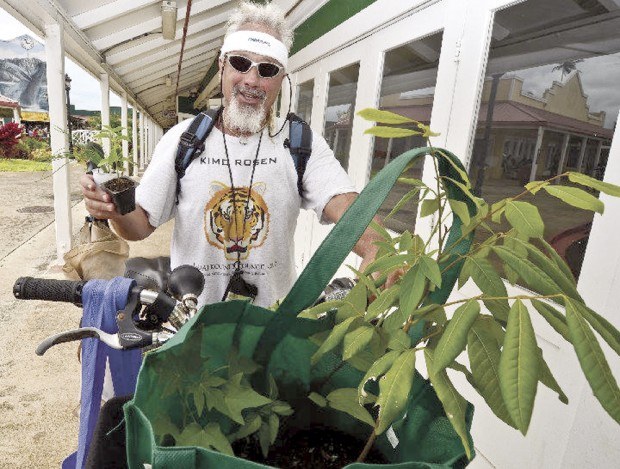KAPA‘A — The Children of the Land Center for Polynesian Culture (Na Keiki O Ka ‘Aina) has partnered with the Kaua‘i Community Seed Bank at the center’s headquarters in Kapa‘a to promote “growing food together,” seed bank co-founder and spokeswoman
KAPA‘A — The Children of the Land Center for Polynesian Culture (Na Keiki O Ka ‘Aina) has partnered with the Kaua‘i Community Seed Bank at the center’s headquarters in Kapa‘a to promote “growing food together,” seed bank co-founder and spokeswoman Jill Richardson said.
To celebrate, the public is invited to a free ninth biannual Kaua‘i Community Seed and Plant Exchange to be held at the center from noon until dark on Sunday at The Children of the Land Center for Polynesian Culture, located in the Kaua‘i Village Shopping Center next door to Papaya’s Natural Foods in Kapa‘a.
Participants are asked to bring non-invasive, non-GMO, pre-cleaned, insect- and disease-free cuttings, potted plants and seeds to share freely.
Seed and plant check-in is from noon to 2 p.m. Presentations on the seed bank, la‘au lapa‘au, and Coco Palms malama ‘Aina project will happen from 2 to 3 p.m. The pule and exchange will follow at 3 p.m.
Live music by Malama Pono All Stars is scheduled from 3 to 5 p.m. Cook Islands/Tahitian drumming begins at 5 p.m., followed by fire dancing and a poi ball performance at the center’s outdoor stage.
The seed lab will be open with hands-on activities. People who have never been to a seed and plant exchange are encouraged to come.
The Kaua‘i Community Seed Bank is a collaborative project of Regenerations Botanical Garden and Children of the Land. It was established in 2007, born out of the idea that diverse varieties of plants could best be grown and maintained by the public, thereby contributing to the global conservation of important and threatened plant life.
“It’s like a library of seeds, where people can come get the seeds and return the surplus,” Richardson said.
With the high cost of food, Richardson said the seed bank is also an opportunity for island residents to grow vegetables to save on grocery bills, so there is a bigger emphasis this year on easy-to-grow perennials.
“We need our greens and our anti-oxidants,” she said.
To save more money, those who want to grow their own foods do not have to pay for the seeds. They only have to volunteer to help the seed bank grow or clean seeds, she said.
The seed bank promotes growing several plants on a plot instead of just one and focuses on nitrogen-fixing plants that will be good for the soil, she said.
“It’s a way of living with the land instead of off the land,” she said. “The bugs aren’t as attracted to multi-layered ecosystems.”
The Kaua‘i Community Seed Bank is currently 100 percent volunteer operated; expanded community support to make this a successful endeavor will be crucial to its long term success.
The seed lab is open to the public from 9 a.m. to 5 p.m. every Thursday, during which time volunteers assist in receiving, cleaning, drying, storage and distribution of seeds and associated data. Other times can be arranged by appointment.
Paul Massey, director of Regenerations and manager of the seed bank, will be providing rooted ‘awa cuttings grown at the Regenerations Seed Garden in Kalihiwai.
“Life-giving seeds are central to the survival and enrichment of all cultures on Earth, and it’s a great honor to help perpetuate the traditions here in Hawai‘i,” Massey said.
Local seed banks are common in developing countries, where subsistence farming is still practiced. It serves as a place were villagers can maintain a safe storage location, share seed-cleaning tools and organize efforts to save diverse collections of crops. It is often run like a library, where people can check out seeds with the commitment to return the surplus they grow out.
Although there are relatively few community-based seed banks in the U.S., its popularity is growing.
For more information call 652-4118 or go to www.ribg.org.


